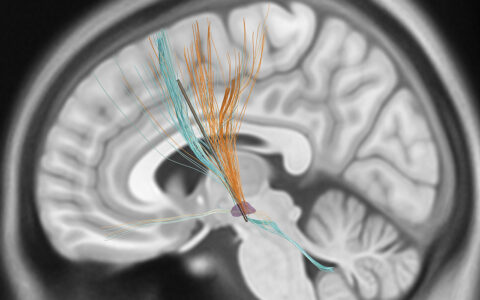Using the electronic medical record (EMR) to conduct routine screenings for depression and anxiety has led to an upswing in detection and treatment for this common comorbidity in epilepsy patients.
“We know that depression and anxiety are underdiagnosed and undertreated in patients with epilepsy, and that one of the big issues is providers being short on time,” said Jonah Fox, M.D., a neurologist at Vanderbilt University Medical Center.
Super Simple Approach to Screening
Accordingly, the new approach makes the process of screening virtually effortless for providers, while still providing actionable information about a patient’s mental health. Adequate care for such mental health issues matters a great deal in terms of the quality of life experienced by a person with epilepsy, Fox explained.
“Anxiety disorders and depression have been demonstrated to explain a greater variance in quality-of-life metrics than seizure type or frequency,” wrote Fox and colleagues, in an Epilepsy and Behavior article describing their new screening method.
Lacking Time to Assess Mental Health
The Vanderbilt researchers conducted their proof-of-concept study among the patients of four epileptologists at Vanderbilt’s Epilepsy Center, which Fox says usually books about 220 appointments weekly. Prior to the study, the clinic did not routinely screen epilepsy patients for anxiety and depression.
“Anxiety disorders and depression have been demonstrated to explain a greater variance in quality-of-life metrics than seizure type or frequency.”
“Clinic times for these routine visits are very short,” Fox said. “We may have 20 minutes for a follow-up and we have to talk about their epilepsy, and there just isn’t time to address these other important issues. Prescreening helps with flow issues.”
Time Pressures Are Commonplace
The problem of insufficient time to monitor mental health is widespread. “A recent survey by the International League Against Epilepsy among 445 participating providers from 67 countries found that only slightly more than 40 percent of respondents routinely assess for both comorbidities and only approximately one-quarter used a validated screening instrument,” Fox and his co-authors wrote.
Time pressures are the main but not the only impediment to comprehensive mental health screenings. Providers also have limited access to psychiatric and psychological treatment resources, Fox says, and may be uncertain about appropriate screening instruments.
Testing an Efficient Approach
Starting in late October 2020, the four epileptologists began sending validated surveys created to identify anxiety (Brief Epilepsy Anxiety Survey Instrument, or brEASI) and depression (Neurological Disorders Depression Inventory for Epilepsy, or NDDI-E) through their patients’ electronic portals. The surveys were made available to patients two to three days before an appointment and accompanied an appointment reminder. Clinic staff also telephoned patients to confirm the appointment, and to ask them to complete the surveys.
“No one has to do anything. The provider sees the results right there in a certain area of the EHR, and can then discuss possible next steps to deal with the issues.”
The surveys went out to 351 patients and were completed by 63 percent of recipients. Approximately half screened positive for either depression (16 percent), anxiety (6 percent) or for both (26 percent). These levels were significantly higher than those observed among the 212 participants who did not take the surveys.
More Patients Receive Needed Care
Initiation of mental health treatment occurred at a significantly higher rate among patients who completed the survey, in comparison to patients who did not complete it, and to those who had had no opportunity to complete it.
Selective serotonin reuptake inhibitor medications were the most common treatment method prescribed for patients with newly identified depression, anxiety or both. The next most widely used interventions were changes to possibly problematic medications, followed by referral to a psychiatrist, according to the authors.
“We tried to make this screening really easy for the provider, with the results automatically populating in the medical record system,” Fox said. “No one has to do anything. The provider sees the results right there in a certain area of the EHR, and can then discuss possible next steps to deal with the issues.”
Mental Health An Integral Part of Epilepsy
People with epilepsy have roughly double the rate of depression and anxiety than the general population, Fox stated. “Part of it is a reaction to the stressors in their life by having epilepsy,” he said, adding that stigma and shame can contribute to mental health troubles.
“It’s also evident that depression and anxiety are probably a part of the epilepsy itself,” he added. “Especially in certain types of epilepsy, the disease affects parts of the brain that are involved in mood and anxiety.”
Potential for Wide Adoption
The needs of patients who did not complete the surveys may be addressed on the day of their appointments, with patients checking in using tablets, Fox says.
“When we switch to digital check-in, patients completing the surveys will just happen permanently,” Fox said, adding that it’s an easy-to-adopt intervention. “Other hospitals that aren’t doing this regularly can adopt this approach.”





